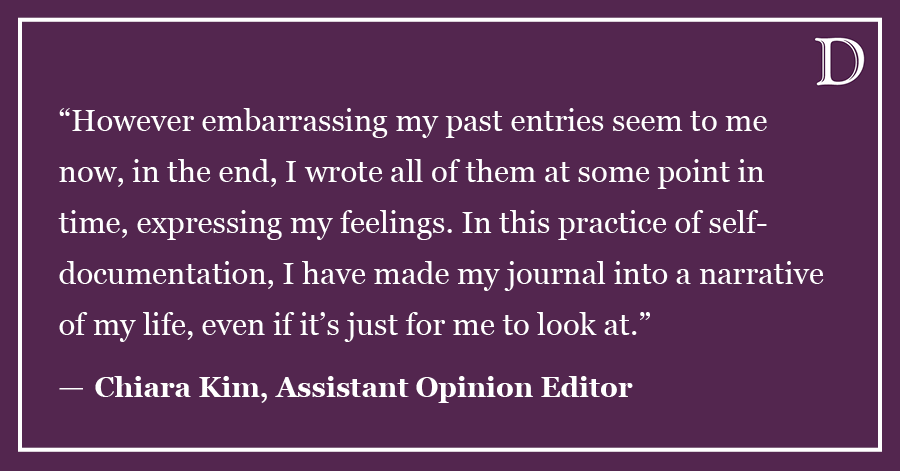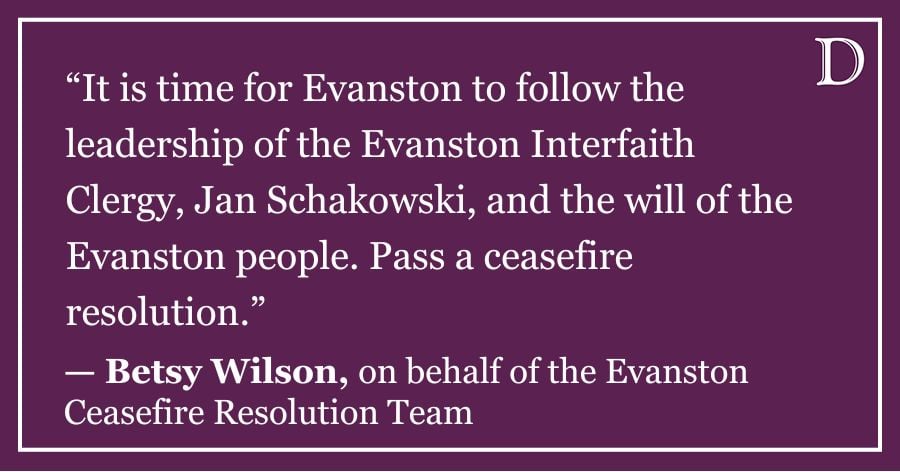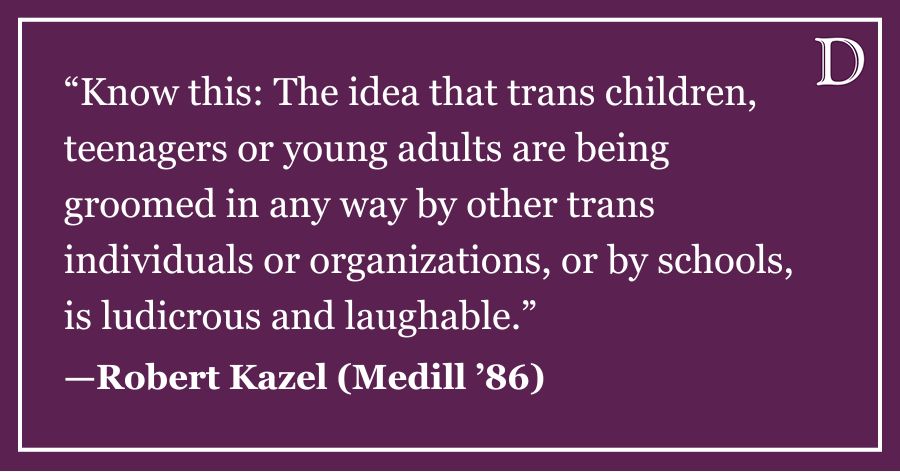Yesterday, a column was published in The Daily analyzing where a fan base should draw the line when jeering opponents. Alex Putterman, the column’s author, used the example of students chanting allusions to the sexual assault allegations against Dez Wells during Northwestern’s contest with Maryland. The column seemed to trivialize sexual assault by saying the use of references to it to get inside opposing players’ heads was not a big deal and should be taken in good fun.
I disagree with Alex’s position, although I am also sure he did not intend for his message to come across as it did. Serious issues like sexual assault deserve our respectful attention.
However, this does not mean that we should attack the views of others with all-caps Facebook posts. By turning the debate into a proverbial shouting match, we only succeed in trivializing the issue further. Instead, we should have a — wait for it — conversation.
This particular controversy centers on the way we perceive the intersection of sports and serious social issues. The two do not often come into direct contact, and we tend to treat sporting events as if they are vacuums. When we’re in the stands, the outside world ceases to exist.
Obviously, a conversation should be had about the gravity of sexual assault, and as a student body, we clearly need to do a better job of promoting awareness and sensitivity. The fact that such a chant took place is evidence enough of that.
But like many of us, I am not content with fixing only one issue when others remain. If we, as sports fans, are going to strive to clean up our act, we should get serious about it. We need to take a broader view.
Let’s start with taking a look in the mirror. Like many of my fellow students, I partake in the jangling of keys and the chanting of “State school! State school!” during football games. As we all know, the implication of these rituals is something along the lines of, “We go to a private school with a lot of money. We’re better than you.”
Why is this type of behavior OK? Who is to make decisions about what kind of offensive jeering is worse than another? How many friends do you have who didn’t have the money to go to college? What about the ones who went to the only place they could afford? It is not acceptable, in my eyes, to pick and choose subjects to feel outrage over based on whether or not it is convenient for us to try to change our behavior.
At the professional level, we as fans have become all too accepting of offensive behavior from our favorite teams and athletes. If we are going to call for fans to change the way they heckle, then we must also demand the same from our the people and organizations we place on pedestals.
Take, for example, the Washington Redskins. The name, when given some thought, is incredibly offensive to a group of people that endured centuries of cruelty and persecution from our own government. Why has the call for a name change not succeeded? Because we’ve grown accustomed to it, and to change would be inconvenient.
Baltimore Ravens linebacker Ray Lewis was involved, in some manner or another, with the murder of a man after Lewis and his friends got into a fight outside of an Atlanta club. Yet yesterday he rode off as a hero, and many sports fans have either forgotten or forgiven.
And it is not as if I am free from culpability in this problem. As a fan of the Bears, I supported wide receiver Brandon Marshall this past offseason when he was accused of assaulting his girlfriend. I was concerned with the potential of him facing a suspension and admittedly placed the fortune of my own team over the necessity for justice.
Perhaps you are reading this thinking that I’ve missed the point. After all, it has been a while since the phrase “sexual assault” was mentioned in this column. What I am saying is that many of us self-righteously attack the opinions of others so we can feel superior. It isn’t constructive.
So if we, as fans, are going to feel outrage over certain things other fans do or say, then we need to drag our own behavior into the conversation. You’ve acknowledged a symptom of an overall problem in sports. Making lasting, positive change requires that we stay constructive.
Dan Ryan is a Weinberg junior. He can be reached at [email protected]. If you would like to respond publicly to this column, email a Letter to the Editor to [email protected].














